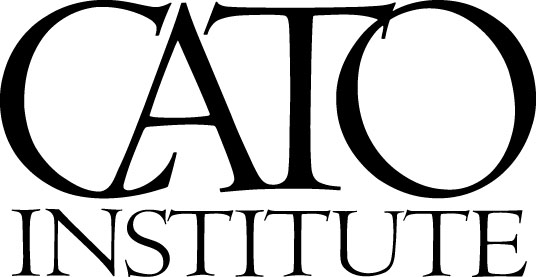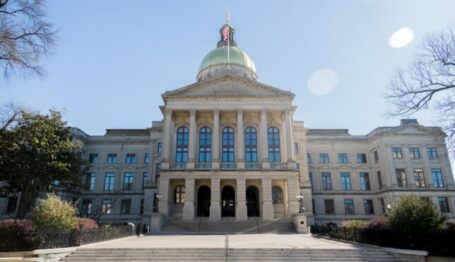Featured Items
School Choice and Democracy: Friends or Foes?
 Image via the Cato Institute, goo.gl/te4eU4
Image via the Cato Institute, goo.gl/te4eU4

A policy forum on school choice held on July 26 by the Cato Institute, a libertarian policy think tank, featured an informed and interactive debate on whether private school vouchers are compatible with fostering democratic principles in students. The forum featured Richard D. Kahlenberg, senior fellow at The Century Foundation; Max Eden, senior fellow at the Manhattan Institute; and Corey A. DeAngelis, the Cato Institute’s own education policy analyst and doctoral fellow in Education Policy at the University of Arkansas.
Promoting Democratic Values
Kahlenberg noted statistics showing that falling respect for democratic values among the nation’s youth and the election of Donald Trump, who he claims has “authoritarian tendencies,” as proof that the shift toward market-based education has come at the expense of the original purpose of public education: to inculcate democratic values within students. He further argued that private schools could not fulfill the same role as public schools because private schools tend to produce the segregation of students by race and religion.
DeAngelis, who supports school choice through education savings accounts, also decried the election of President Trump; but used the president as an example showing why public schools have failed students—citing a statistic that 90% of the American electorate in the 2016 presidential election graduated from public schools. DeAngelis pointed out as an example that forcing students of diverse backgrounds together does not mean those students necessarily interact with each other.
Eden added that “school choice and democracy should be friends, if not besties [best friends].” Alexis de Tocqueville, Eden noted, observed during his visit to the United States in the 1830s a fundamental difference between American public schools and French public schools: in America, public schools were associations between community members, but that was not the case in France. Eden said he did not believe de Tocqueville would recognize modern American public schools as free associations, but rather as top-down systems closer to the French system of his own day.
Religion in Private Schools
Kahlenberg voiced his support for school choice, but within the public school system. He strongly objected to the idea of giving taxpayer funding to private schools because many private schools have restrictive admission policies based on religion, noting that most private schools are in fact Christian schools, whose primary function is to inculcate in students a “love of God, not a love democracy.” Eden countered that giving parents the financial choice of sending their children to a school that teaches a love of God is not a bad thing, adding that if an individual dislikes “the religious right,” he or she will certainly dislike the “post-religious right.” Eden went on to cite quotes about religion and morality from the American Founding Fathers, such as John Adams on religion and Benjamin Franklin. Franklin wrote:
Only a virtuous people are capable of freedom. As nations become corrupt and vicious, they have more need of masters.
Eden went on to ask the audience if they had ever heard the word virtue mentioned in their public schools. He said that he himself had not despite having attended a very high-achieving public school; but noted that he has seen virtue emphasized in many private schools—even if it is sometimes “cheesy.” Eden tied this observation into his broader point that private and charter schools are quite capable of training students in the virtues of democratic government even when it is not their primary goal.
Congress’ Northwest Ordinance of 1787—which Eden observes was passed shortly after the U.S. Constitution was ratified—included the words:
Religion, morality, and knowledge, being necessary to good government and the happiness of mankind, schools and the means of education shall forever be encouraged.
Value, Eden stressed, was placed on religion first, morality second, and knowledge third, and that questioning this basis of education is similar to questioning whether the concept of “first principles” is in line with democracy.
School Vouchers
The forum concluded with ample time for audience questions to the panelists and while most audience members directed their questions to those with whom they disagreed, the discussion continued to prove cordial and informative. A representative from the American Federation of Teachers (AFT) used the opportunity to ask the panelists how private and charter school vouchers would provide for students that have suffered trauma or come from impoverished backgrounds that currently benefit from “wrap-around services” provided by public schools.
DeAngelis responded that he favors education savings accounts over school vouchers, but emphasized that either policy would allow students to remain in the public schools they currently attend “if those schools are doing [ ] a good job.” Eden cited past experimentation in schools in Washington, D.C. when parents were given the opportunity to choose their children’s schools. The result, he explained, was that it changed their attitude toward engagement with their children—which in turn helps teachers. He added that another good aspect of school choice is that it gives parents greater opportunity to pick schools that specialize in their children’s needs.
Kahlenberg, who earlier in the panel had referenced former AFT president Albert Shanker, responded to the AFT representative’s question by pointing out that Shanker himself once opposed the creation of the Department of Education—in part because he feared the National Education Association would run the government agency, and because Shanker did not want the government to treat health, child welfare, and education separately.
As CRC’s March 2011 edition of Labor Watch notes, Shanker even supported charter schools – until he saw they would pose a threat to the AFT’s stranglehold on America’s public education system.



